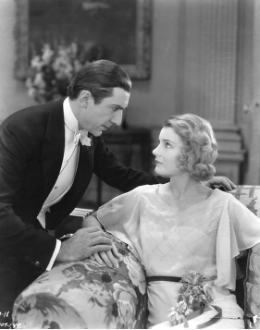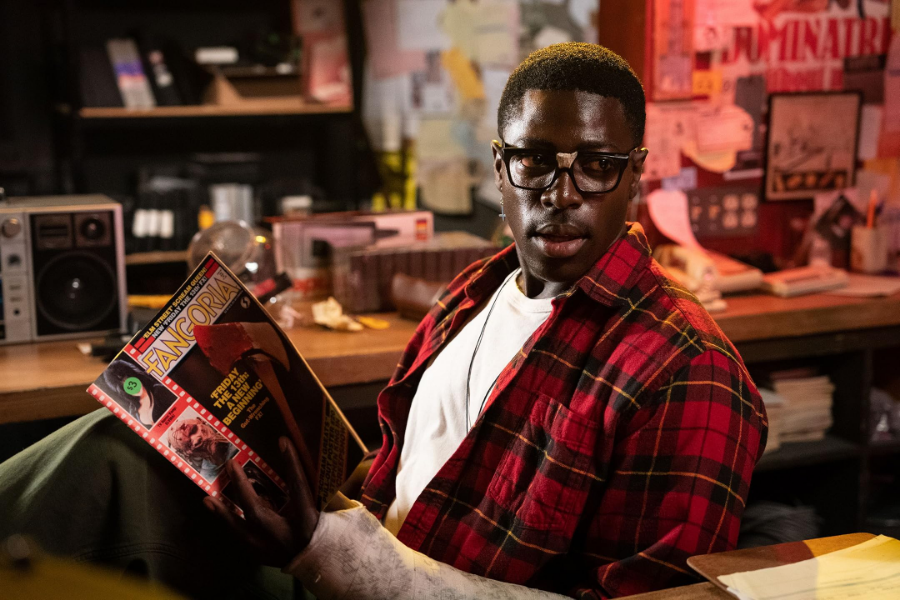(Wei Shujun, China, 2023, 101 minutes)
There are few genres more self-referential than film noir. As Wei Shujun's richly atmospheric, Mandarin-language noir begins, the Peishui City police chief (Hou Tianlai) requisitions an old movie theater as office space for the county's criminal investigation unit.
By setting up desks on the stage in front of the screen, they're essentially enacting a film within a film. (Wei and co-writer Kang Chunlei adapted the screenplay from To Live author Yu Hua's novella Mistakes by the River.)
It's a clever idea, though one inspired by a sad fact, since the grand old theater's closure has more to do with a downturn in the county's economic fortunes than a lack of interest in movie-going. There's also something sad about a police force that doesn't have their own headquarters.
Captain Ma Zhe (Zhu Yilong, who put on 20 pounds for the role), meanwhile, sets up shop in the projection booth, surrounded by canisters of film. Through a square opening in the wall, he can observe the detectives, but he's otherwise physically (and psychically) isolated.
Cinematographer Zhiyuan Chengma shot the film on 16mm, making it look more like a movie movie than a documentary or docudrama. The year is 1995, and the officers use pagers rather than cell phones. The film begins in earnest when Ma receives a message about a murder.
Like the noir films of China's Diao Yinan (Wild Goose Lake) and Bi Gan (Long Day's Journey into Night), this one is filled with water. The town, which is located in Jiangdong Province, is situated next to a river, the victim--Wang Fengxia (Yang Cao), aka Granny Four--is found lying by the shore, and scenes are often drenched in rain and mud whenever the detectives set foot outside office or home.
Through their questioning, Ma and his excitable partner, Xei (Tong Linkai), find that neighbors thought highly of Granny Four, but less so of the young man (Kang Chunlei) she adopted after her husband's death. In fact, they call him the madman; more because they find him strange than because they find him dangerous. From the way they describe him, he sounds developmentally disabled. It's the first sign that conformity rules in this community; if you step outside the lines, you will get shunned.
If the detectives aren't convinced that the madman--his name never appears in the film--who reappears after a brief absence, had anything to do with the murder, they're convinced that a cassette found in the victim's handbag may provide a clue. There's music on one side--and a young woman's voice on the other. Her words reveal a secret love affair with someone named Hong, but the detectives consider the train sounds in the background more significant...though I was never certain why.
Ma and Xie proceed to interview a few rather unusual suspects, like a hairdresser who asks for them to arrest him, even though there's no evidence he killed--or even knew--Granny Four. Like the couple on the tape, he's hiding a secret. Xie, in some ways, is almost as offbeat, but in more subtle ways. He hums along to the music on the tape and makes weird train noises when they interview a conductor. Though Jessica Kiang, in her Variety review, cites Wei's "pitch-black sense of humor," I didn't feel he was going for comedy so much as an evocation of a provincial town's secrets, lies, and quirks.
Even before the detectives have solved the first case, another body turns up. They had interviewed the victim, though his connection to Granny Four isn't clear. The chief feels certain he knows who committed both crimes, though he has no proof. He just wants the captain to arrest this person, write up his report, and put the case to rest. Then another--and yet another--body turns up, capsizing the theories of both captain and chief.
All the while, Ma and his wife, Jie (Zeng Meihuizi, aka Chloe Maayan, who has worked with Bi and Diao), are expecting their first child, only to find there may be complications. Any time something in this film seems easy or straightforward, complicating factors arise. As his personal and professional lives circle the drain, the handsome captain starts to look tired and worn--he was never exactly an ebullient presence to begin with.
The concept of a film within a film returns when Ma watches a slide show featuring images of the suspects and victims over and over again--after all, his office is filled with projectors. At a certain point, the slides start to include images from his own life, both real and imagined, a sure sign that he needs a good night's rest or that he's losing his marbles. His behavior afterward suggests the latter, not least when he starts to see a certain person who may or may not be there. A person he tries to kill. Repeatedly.
The film's credited actors all leave their mark, but it lives and dies by its lead, and Zhu Yilong gives a star-making performance. Until recently best known as a TV performer, he has started to make waves in China for his movie appearances. From some angles, he recalls Tony Leung, but he's more compact and somber in affect. His character doesn't even crack a smile until the end, by which point it's hard to tell is he's truly happy or if these lyrical moments--he even sings in one--are really happening.
The ending suggests that everything works out, except there's something manic about the tone. It could be true, or it could be fantasy. I suspect the answer lies somewhere with the Albert Camus quotation that opens the film: "There's no understanding fate; therefore I choose to play the part of fate, I wear the foolish, unintelligible face of a professional god."
Though Wei has directed two previous features that received a warm welcome at international film festivals--you can stream Striding into the Wind through Prime--Only the River Flows
looks set to be the film that puts both men on the map, not least since
it became a box office hit in its home country, a notable achievement for an
independent feature without clear resolution.
If the film plays more like a procedural than a noir--hence the comparisons to Bong Joon Ho's Memories of Murder--the latter tends to eschew happy endings, so if Only the River Flows is as much a noir as a comment on the noir, well, I think Ma Zhe has a pretty vivid imagination.
6/20/25 update: Only the River Flows is now on The Criterion Channel.
9/2/24 update: Only the River Flows opens in Seattle on Sept 14 at the Egyptian and Sept 15 at SIFF Film Center. Click here for more information.
Only the River Flows is currently playing at New York's Metrograph and opens at San Francisco's Roxie on Aug 16. Find more dates here, though nothing scheduled for Seattle yet. I'll update this post when there are more opportunities to see it on-screen or online. Images: KimStim (Zhu Yilong and Chloe Maayan), FirstShowing.net (Zhu and Tong Linkai), Roxie Theater (Zhu and Maayan), and Sinema Transtopia (Zhu and projector).














